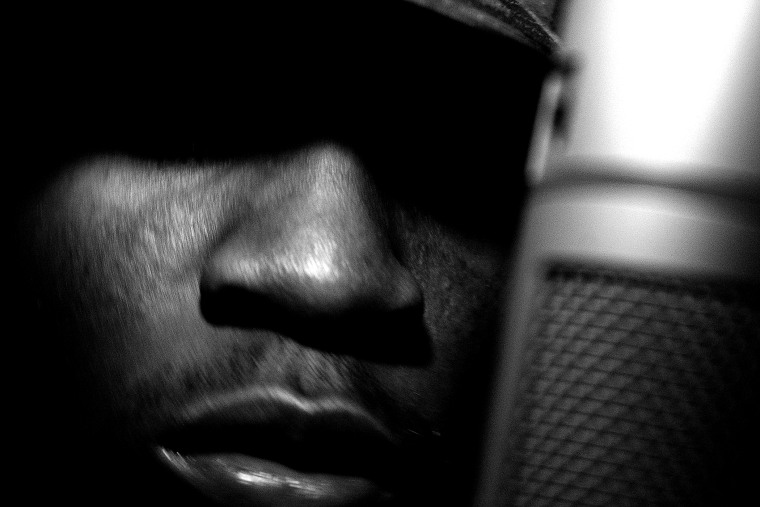First things first, Nicki Minaj will not literally eat your brains. Jay-Z has not sold water to a well. And Nas does occasionally sleep.
"One would not presume that Bob Marley, who wrote the well-known song ‘I Shot the Sheriff,’ actually shot a sheriff."'
That may seem obvious. But when New Jersey prosecutors accused Vonte Skinner of attempted murder for shooting Lamont Peterson seven times over a debt, they took his rap lyrics seriously — so seriously that they introduced them as evidence at his trial, arguing that the words "provided insight into defendant’s alleged motive and intent."
The New Jersey Supreme Court ruled unanimously Monday that the lyrics had prejudiced the jury, and that artistic expressions —absent a "strong nexus" to the crime — should be seen as just that.
"One would not presume that Bob Marley, who wrote the well-known song 'I Shot the Sheriff,' actually shot a sheriff,"
wrote Justice Jayne LaVecchia, "or that Edgar Allan Poe buried a man beneath his floorboards, as depicted in his short story 'The Tell-Tale Heart,' simply because of their respective artistic endeavors on those subjects."
Unlike rap, however, a short story would probably not make it into evidence. That's because when it comes to using art to incriminate people, rap has been the focus of "the vast majority of cases analyzing the use of fictional expressions as evidence of character or motive and intent in criminal proceedings,"
according to a brief from the American Civil Liberties Union of New Jersey. Allowing artistic self-expression to be used as general evidence of a defendant's "state of mind," the brief argues, would have a chilling effect on artists who fear their words may be used against them by the state. Prosecutors have tried to introduce rap lyrics as evidence in at least 18 cases; in 14 of those instances they have succeeded.
"Virtually every case dealing with the admissibility of artistic expressions to show motive and intent of a criminal act dealt with rap lyrics," said Ezra Rosenberg, an attorney with Dechert LLP and the author of the New Jersey ACLU's brief. "Rap ... many scholars have written, is a reaction to the mass incarceration of young African-American males in our inner cities. Some view it as rebellion, some as the embracing of the criminal stereotype, some simply as a cry of despair. Whatever the reason, It strikes me as cruelly ironic that this particular form of artistic expression is being used to maintain the vicious cycle of mass incarceration."
While hip-hop is far less controversial than it once was, its simultaneous embrace and critique of capitalism, hypermasculinity, and violence has long made politicians, cultural critics, and pundits uncomfortable by reflecting those negative aspects of American culture. The form almost always employs a first-person narrative and a rhetorical persona, making it seem frighteningly literal to those unfamiliar with the genre— or to those seeking to use the form to demonize others. In a society where
racialized fears and assumptions can cloud people's judgment, separating a human being from their fictional persona can be a harder task than it should be.
Skinner's rap alias was "Real Threat." Investigators searching his car found notebooks littered with lyrics like:
You pricks goin’ to listen to Threat
tonight. ‘Cause feel when I pump this P-89
into your head like lice. Slugs will pass
ya’ D, like Montana and Rice
Even the prosecutors however, acknowledged that "many were composed before the circumstances underlying the instant offense took place." Nevertheless, they said, the lyrics showed Skinner's "motive and willingness to resort to violence," and supported their theory that he was acting as an enforcer for a drug crew to whom Peterson owed money.
The New Jersey Supreme Court unanimously upheld a lower court ruling that the rap lyrics had been improperly introduced as evidence — a decision that will force prosecutors to retry Skinner. "[I]t has not been established by clear and convincing evidence ... that defendant engaged in any of the events portrayed in his rap lyrics," LaVecchia wrote. "Thus they can only be regarded as fictional accounts." New Jersey prosecutors
have said they intend to retry Skinner without the lyrics.
The court's decision still leaves the door open for some cases that use rap lyrics as evidence, though. Namely, if the words contains obvious details of a specific crime the author is accused of, that could make it admissible as evidence in court.
"There was one case where a guy was arrested for killing his wife, and, when in jail, he wrote a rap song about killing his wife. That sort of case may present facts where rap lyrics might be admissible," said Rosenberg. "What we should not see, if the opinion is followed and applied correctly, are situations where courts admit rap lyrics simply to show that the defendant wrote seemingly knowingly of a world of violence."
